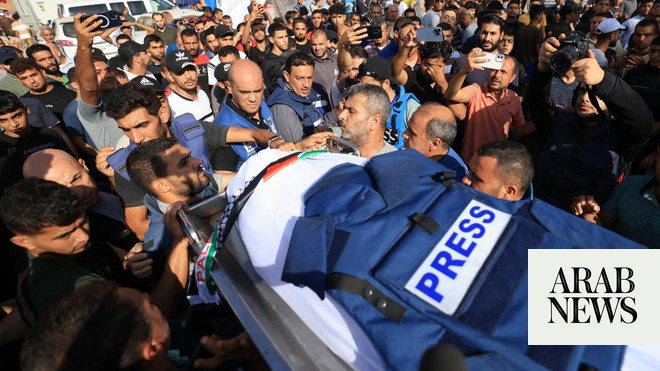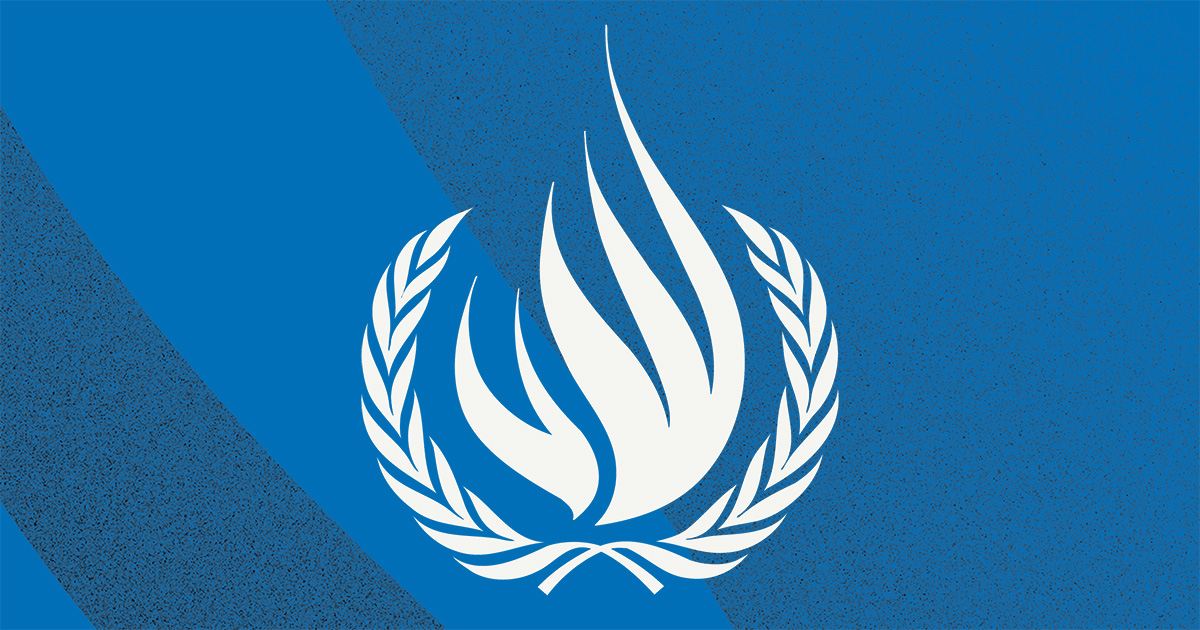
The Palestinian Journalism Syndicate last year reported that Israel had killed 46 journalists in the preceding two decades. Meanwhile, the Committee to Protect Journalists says that 18 journalists have been killed in Israel and the Occupied Territories in the past 28 years. Which figure is correct, one might ask. But one should really ask: Why doesn’t anyone care?
It seems that no one in the mainstream American news media is exploring why any journalists at all were killed by the Israeli military, probably because it is politically unpopular. The US media is unlikely to report such murders because they fear a backlash from Israel’s propagandists.
In America, criticism of Israel is effectively defined as a form of anti-Semitism. All you have to do is look at the more than two dozen US states that have passed laws punishing anyone who boycotts Israel due to its stealing of land and assets from civilians in the West Bank and East Jerusalem. Even the US Congress is seeking to introduce a law that outlaws boycotting Israel, a foreign country. As a result, most of the media picks and chooses which killings are safest to cover.
Part of the difficulty in documenting these journalists’ deaths is that the Israeli government and military censor media coverage, while many of the local journalists are Israelis whose sympathies openly lie with their own country.
When a Palestinian journalist is killed, the Israeli propaganda machine goes into overdrive, usually blaming the death on the Palestinians themselves. Since only journalists acceptable to Israel are allowed to cover the confrontations, getting accurate information is almost impossible. The solution would be to protest the censorship, but that’s not something the Washington Post or the New York Times would waste its resources on.
Even when a killed journalist works for a major Western media outlet like the Associated Press (AP), Israel’s defenses are activated and the reporting neutralized. This was the case when Nazih Darwazeh, a Palestinian cameraman for the AP, was killed in Nablus in April 2003. Israel rejected claims that its military fatally shot him.
An Israeli soldier points his gun towards a Palestinian protester during a demonstration against Jewish settlements in the village of Beit Dajan in the occupied northern West Bank on March 5, 2021. (AFP / ABBAS MOMANI)
An Israeli soldier points his gun towards a Palestinian protester during a demonstration against Jewish settlements in the village of Beit Dajan in the occupied northern West Bank on March 5, 2021. (AFP / ABBAS MOMANI)
Short Url
https://arab.news/4uf5r
The Palestinian Journalism Syndicate last year reported that Israel had killed 46 journalists in the preceding two decades. Meanwhile, the Committee to Protect Journalists says that 18 journalists have been killed in Israel and the Occupied Territories in the past 28 years. Which figure is correct, one might ask. But one should really ask: Why doesn’t anyone care?
It seems that no one in the mainstream American news media is exploring why any journalists at all were killed by the Israeli military, probably because it is politically unpopular. The US media is unlikely to report such murders because they fear a backlash from Israel’s propagandists.
In America, criticism of Israel is effectively defined as a form of anti-Semitism. All you have to do is look at the more than two dozen US states that have passed laws punishing anyone who boycotts Israel due to its stealing of land and assets from civilians in the West Bank and East Jerusalem. Even the US Congress is seeking to introduce a law that outlaws boycotting Israel, a foreign country. As a result, most of the media picks and chooses which killings are safest to cover.
Part of the difficulty in documenting these journalists’ deaths is that the Israeli government and military censor media coverage, while many of the local journalists are Israelis whose sympathies openly lie with their own country.
When a Palestinian journalist is killed, the Israeli propaganda machine goes into overdrive, usually blaming the death on the Palestinians themselves. Since only journalists acceptable to Israel are allowed to cover the confrontations, getting accurate information is almost impossible. The solution would be to protest the censorship, but that’s not something the Washington Post or the New York Times would waste its resources on.
Even when a killed journalist works for a major Western media outlet like the Associated Press (AP), Israel’s defenses are activated and the reporting neutralized. This was the case when Nazih Darwazeh, a Palestinian cameraman for the AP, was killed in Nablus in April 2003. Israel rejected claims that its military fatally shot him.
When a Palestinian journalist is killed, the Israeli propaganda machine goes into overdrive, usually blaming the death on the Palestinians themselves. Since only journalists acceptable to Israel are allowed to cover the confrontations, getting accurate information is almost impossible. The solution would be to protest the censorship, but that’s not something the Washington Post or the New York Times would waste its resources on.
Ray Hanania
In April 2018, two Palestinian photojournalists — Yasser Murtaja and Ahmed Abu Hussein — were covering clashes between Israeli soldiers and civilian protesters in Gaza when they were shot and killed by Israeli snipers. The Israeli media quickly spread comments made by then-Defense Minister Avigdor Lieberman that everyone in Gaza is a terrorist. A spokesperson for the Israel Defense Forces (IDF) said the deaths would be investigated, but no report has been publicly issued. Worse is that few media outlets have demanded the report or that anyone in Israel be held accountable. No one in the US Congress called for an investigation either and the killings have simply faded into the obscurity of the statistics of Palestinian fatalities.
It was all one big blur of unexplained carnage with no one ever held accountable. Why? Because the only thing that fuels accountability is politics and foreign policy. Murtaja and Abu Hussein were not writing columns advancing the Washington Post’s political agenda against Gulf nations, oil politics or efforts to block arms sales that Israel opposed. They were just journalists trying to record atrocities and convey the truth to a world that was reluctant to listen.
In November 2019, Muath Amarneh, a freelance photographer from the Bethlehem-area Dheisheh refugee camp, was shot in the eye by an Israeli sniper near Hebron and managed to live.
All of the victims mentioned here were wearing clothing clearly marked with the word “PRESS” in big letters. Any sniper looking at them through their high-powered scopes could easily tell that they were not carrying any weapons when they decided to pull the trigger.
There are so many deaths and injuries that I couldn’t possibly list all of the stories here. Yet very few are documented by Israel and Israeli censorship stymies reporting on the rest.
Israel has an iron fist that strangles negative information as aggressively as it snuffs out the lives of Palestinians — civilians, activists and journalists alike.
• Ray Hanania is an award-winning former Chicago City Hall political reporter and columnist. He can be reached on his personal website at www.Hanania.com. Twitter: @RayHanania












